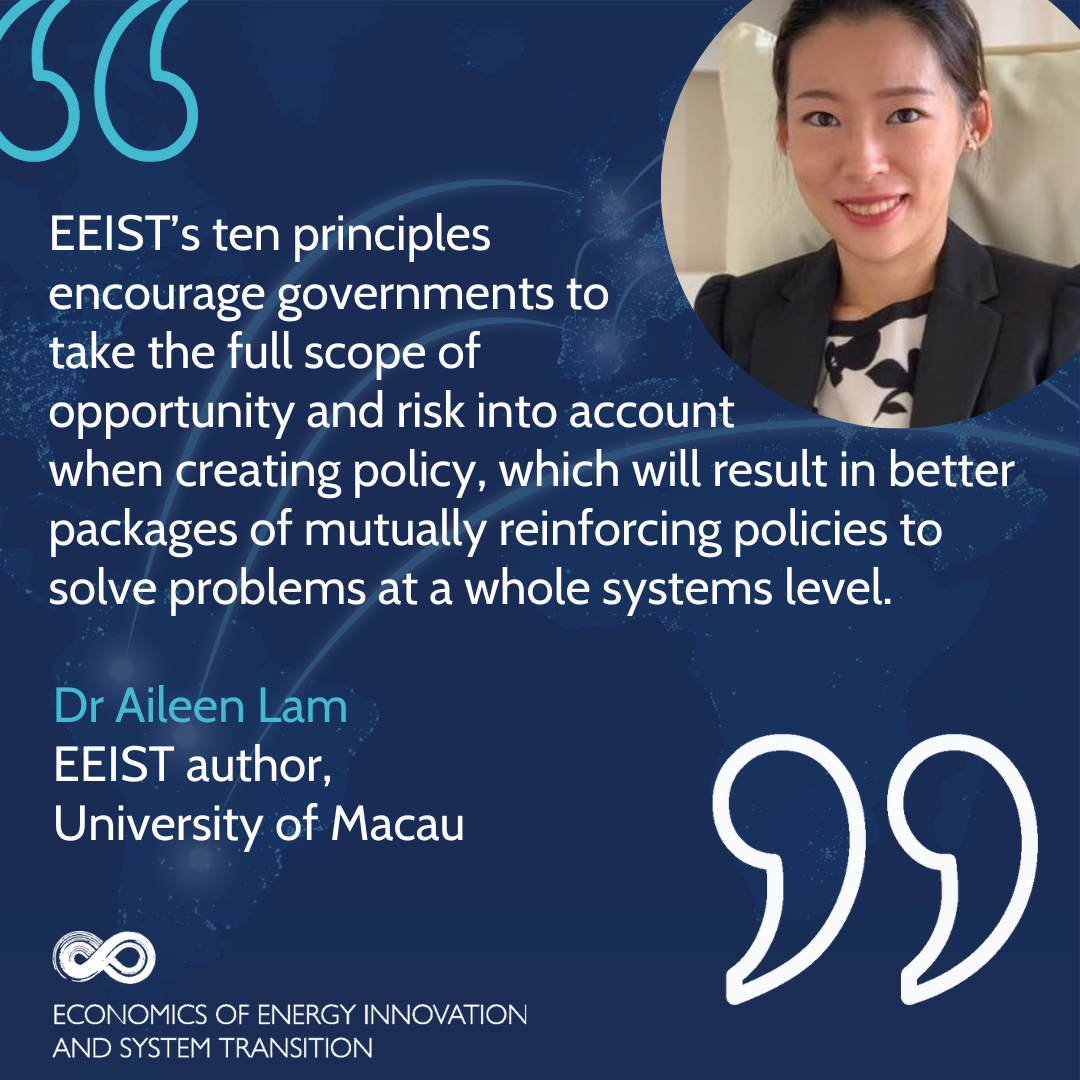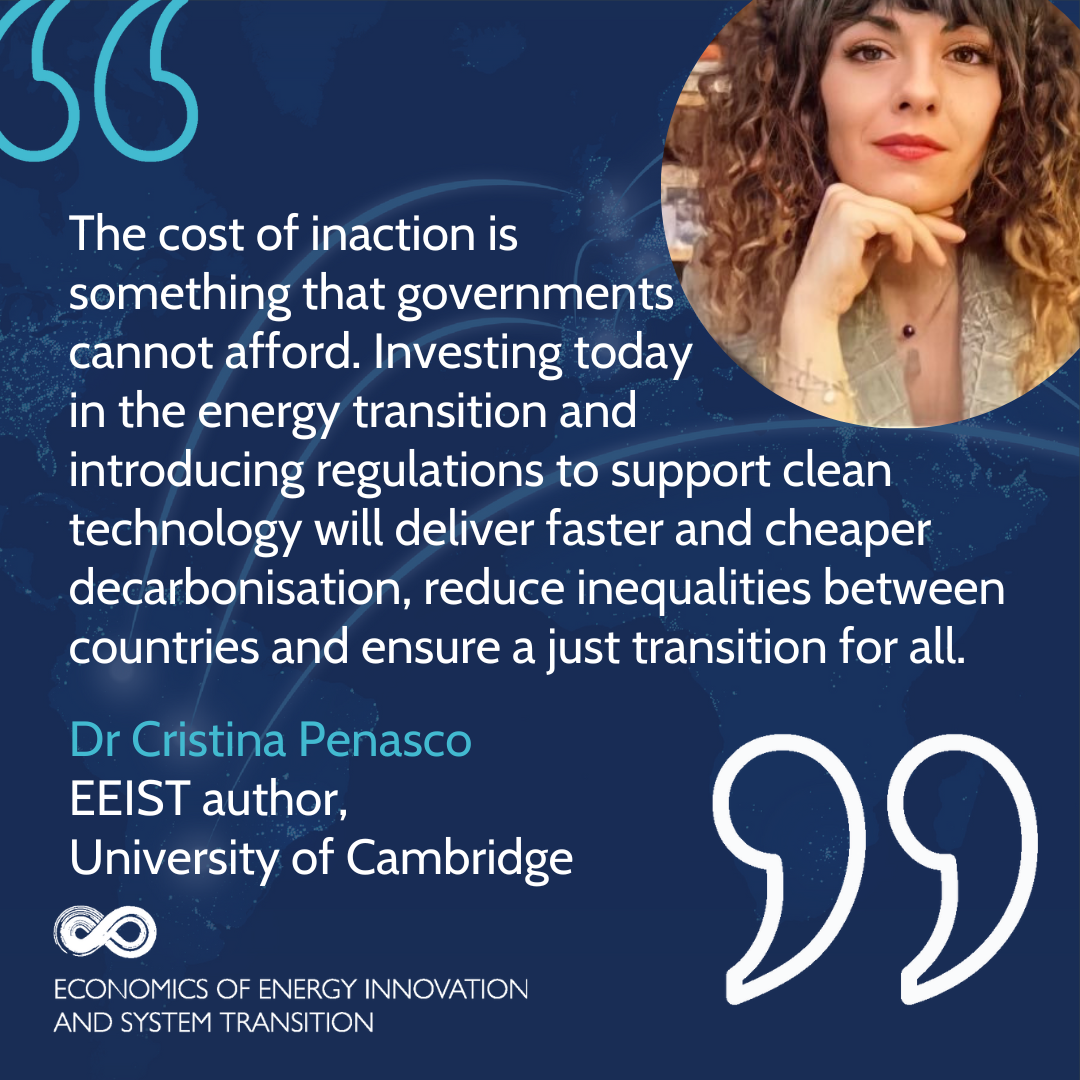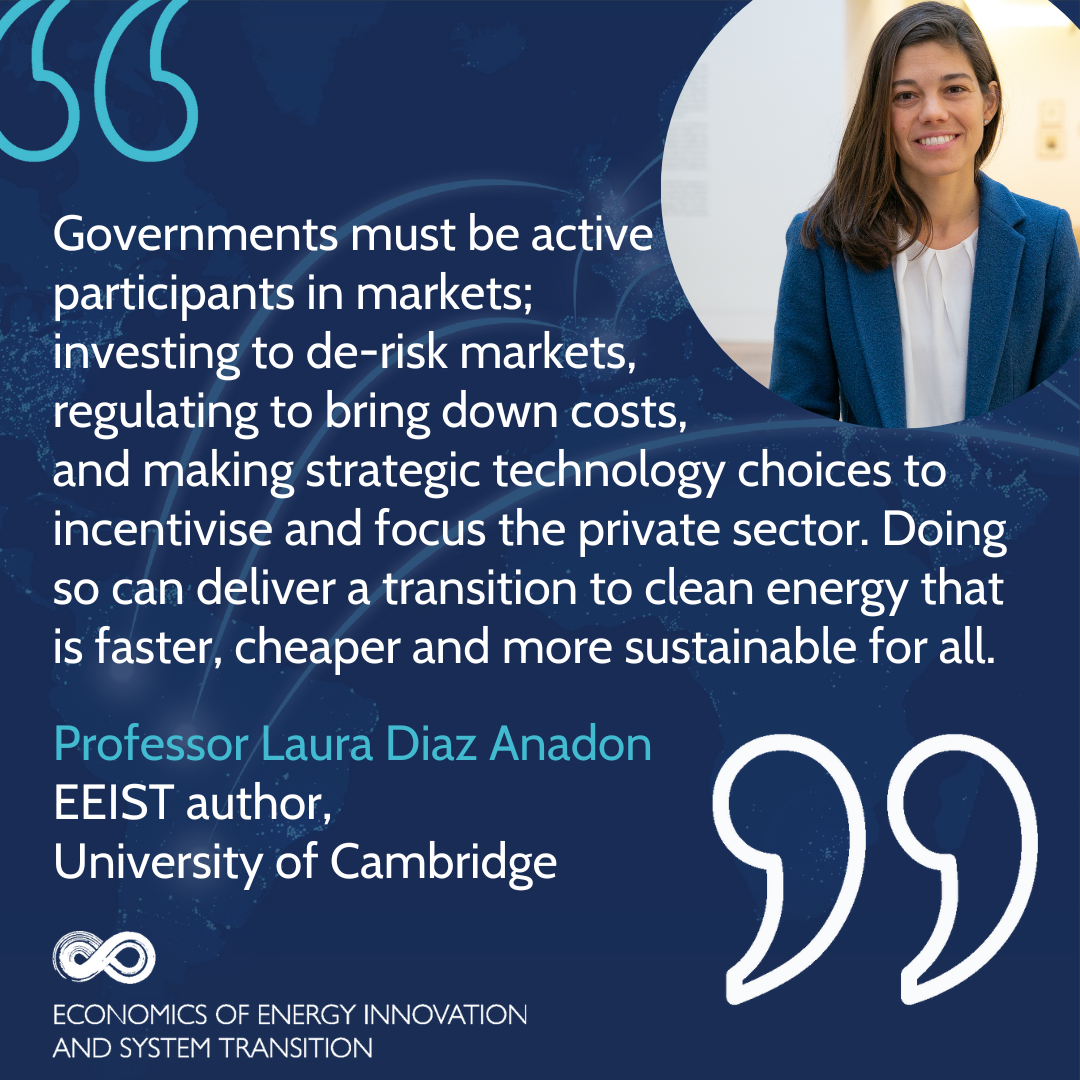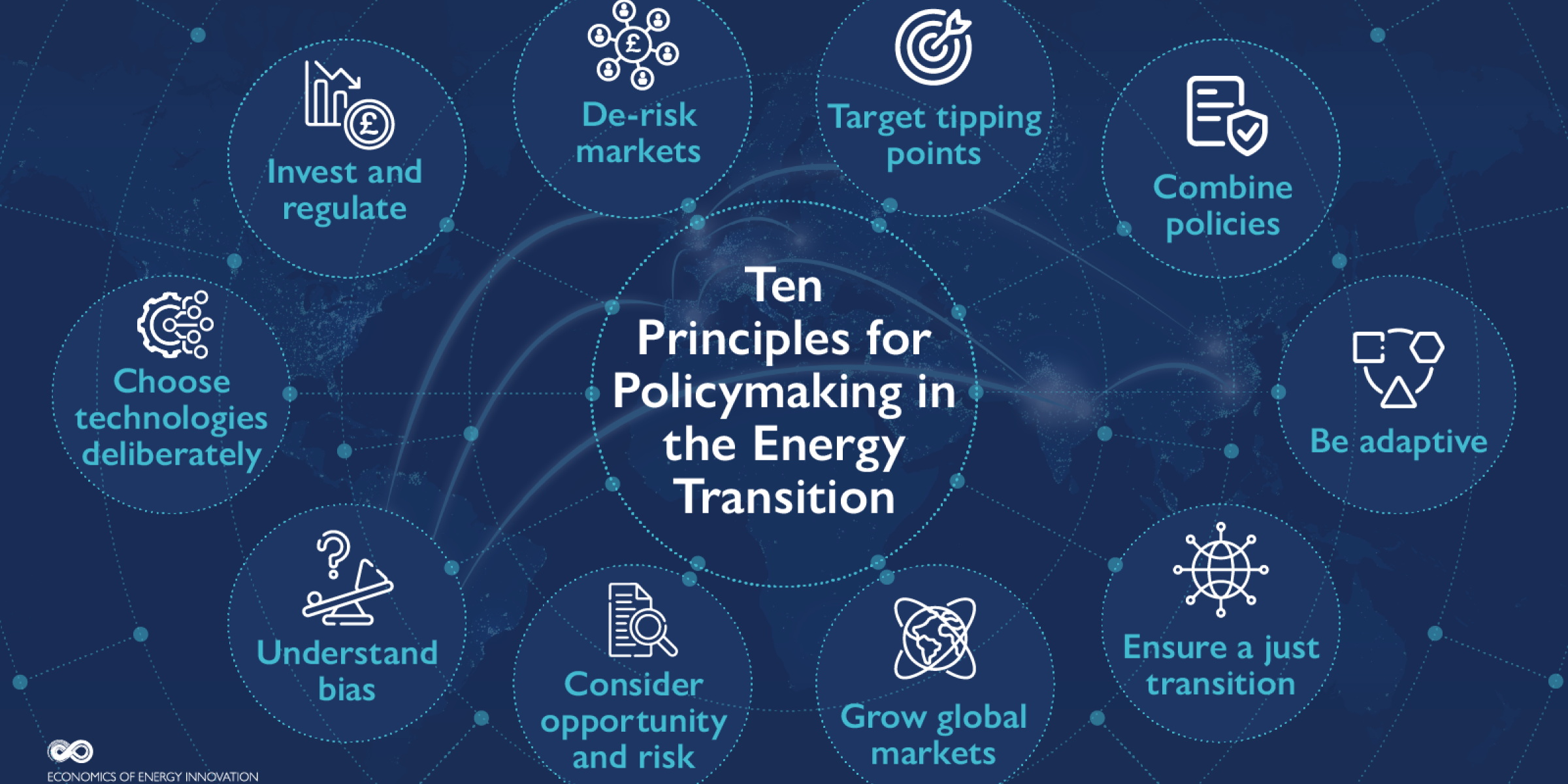The report is led by C-EENRG Director Professor Laura Diaz Anadon, C-EENRG fellow Dr Cristina Peñasco, and Director of Global Sustainability Institute at Anglia Ruskin University, Professor Aled Jones, and includes contributions from many C-EENRG fellows and EEIST collaborators. Based on a comprehensive analysis of the last three decades of global energy policy, the report shows that to replicate the outstanding successes of the energy transition so far, such as offshore wind and solar PV, governments must go beyond just providing a ‘level playing field’ where technologies are left to compete against each other. In fact, they should proactively use the three levers of policy: investment, tax and regulation, to accelerate innovation and cost reduction in clean technologies. The report recommends that governments should also target ‘tipping points’, where clean technologies gain an advantage over fossil fuels, leading to a rapid reallocation of investment.
This contrasts with traditional economic advice, on which policy is often based, which assumes the economy will not change very much. Contrary to some of the advice given to governments over the past 30 years, government policy, investment and regulation can cut energy costs instead of increasing them, crowd in private investment instead of crowding it out, and accelerate innovation and growth. In opposition to the idea that policy should be ‘technology neutral’, the successes of onshore wind, offshore wind, solar PV and electric vehicles were driven by governments directly identifying and supporting the technologies that they needed to succeed.
Ten Principles for Policymaking in the Energy Transition: Lessons from experience provides clear evidence of how and where policy has stimulated rapid innovation and growth in clean energy technologies since the 1990s. Based on this body of evidence, the report calls for governments to urgently reshape their policy approaches to accelerate innovation, job-creation, and cost reduction in the transition from fossil fuels to clean energy.
Professor Laura Diaz Anadon, C-EENRG Director and one of the lead authors of the report, said: “Experience with clean energy policy around the world over the past 30 years shows that it is time to reconsider what is required to meet climate and energy goals. Decisive government action is essential, but to succeed it must rely on a different set of policy principles, given the transformational scale of change required.”
“Governments cannot simply set the goal and encourage the market to deliver. They must be active participants; investing to de-risk markets, regulating to bring down costs, and making strategic technology choices to incentivise and focus the private sector. Doing so can deliver a transition to clean energy that is faster, cheaper and more sustainable for all.”
The following 10 Principles outlined in the report provide a playbook for governments to shape the policies needed to rapidly scale the technologies needed to decarbonise energy and grow economic prosperity worldwide:
- Target specific technologies: Targeting support to specific technologies can drive faster adoption and greater cost reduction than technology-neutral policies.
- Invest and regulate: Government investment and regulation can bring down the cost of clean technologies by sending clear signals to the market and increasing demand.
- De-risk markets: Targeted government action to reduce the risk of private investment in clean technologies can greatly increase rates of investment and deployment, compared to the market alone.
- Target tipping points: Pricing carbon alone is insufficient to achieve the energy transition - targeting tipping points when designing regulation or fiscal incentives can help to drive faster progress.
- Be adaptive: It is impossible to predict the 'best’ way to achieve a low carbon transition –policy should learn from doing and adapt to unforeseen changes.
- Combine policies: Implement mutually reinforcing policies to deliver greater impact that is more than the sum of their parts.
- Ensure a just transition: A ‘just transition’ should be central to policy choices to ensure fairness and social support for the low carbon transition.
- Grow global markets: International efforts should not be limited to growing carbon markets – growing global markets for clean technologies drives faster and more affordable energy transitions.
- Consider opportunities and risks: Policy appraisal should look beyond costs and benefits and consider wider risks and opportunities to better assess policy outcomes.
- Understand bias: There are no ‘correct’ answers in policy analysis – policy makers must be aware of their biases and use a range of models to make transparent and robust choices.
Full explanations of each principle and the supporting evidence can be found in the report.
Media coverage of the report:
- BusinessGreen: 'Decisive government action is essential': New study details how regulation and investment key to boosting green energy
Further quotes from C-EENRG fellows who contributed to the report:




